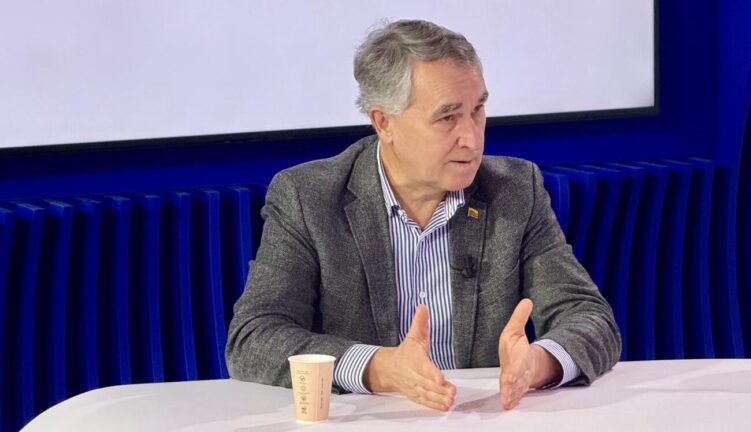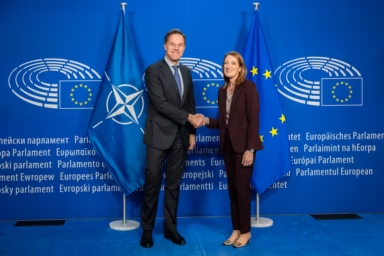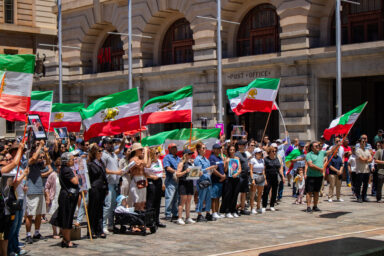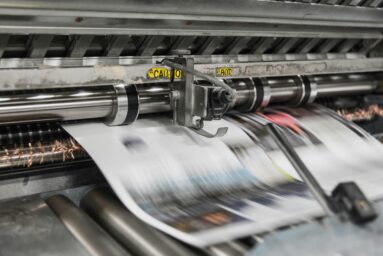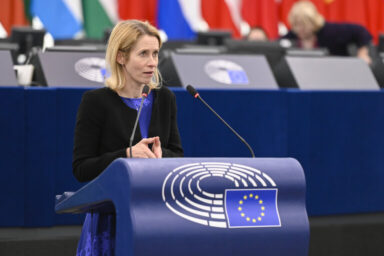It took the European Union eleven years following the Russian annexation of Crimea to produce the White Paper on defence, Petras Auštrevičius bemoans what he sees as a lax attitude towards defence matters throughout the bloc. The Lithuanian Member of the European Parliament’s Renew faction voiced his misgivings – with a dash of cautious optimism – in the 18 March EU Perspectives podcast debate with fellow MEPs Rasa Juknevičienė (EPP/LI) and Markéta Gregorová (Greens-EFA/CZE), and Slovakia’s ex-Defence Minister Martin Fedor.
In times of geopolitical upheaval, all things defence suddenly loom large, no matter where you are. But if your country happens to border both Russia and Belarus, your alarm bells really do go off. So they should all over Europe, Mr Auštrevičius argued forcefully in the EU Perspectives defence podcast from Brussels.
Europe has received a wake-up call in the shape of the U.S. turning its back on its former allies and openly siding with Russian invasion in Ukraine. Is it enough for the bloc to introduce any substantial changes to its – so far distinctly sub-par – defence policies? Mr Auštrevičius is not convinced.
“I don’t think it’s enough, and I will explain why. You know – exactly eleven years ago, on the 18th of March, the Russian Federation annexed Crimea,” the Lithuanian MEP reminded his fellow debaters of the seemingly forgotten date. “It started a good month before that when, all of a sudden, so-called little green polite men appeared with no insignia in Crimea. Everybody knew these were Russian forces. Nobody called them so, though. The Kremlin issued denial after denial – ‘no, no, no, no Russian forces’. And in the end – we have what we have. It’s been eleven years,” he said.
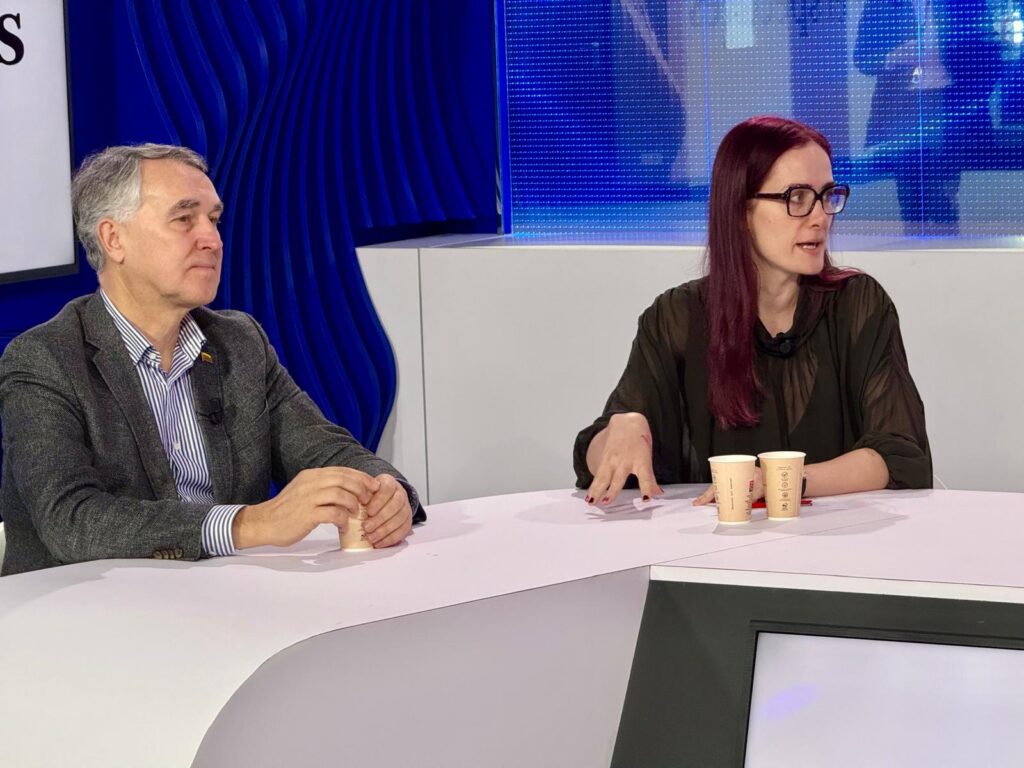
”Eleven years,” he repeated to let the notion sink in. “So what can be better to use that time period for (other than) drawing the right conclusions, and preparing, and adopting the right decisions? Are we?” he asked a question; the answer was painfully obvious. “After eleven years, we’re still waiting – for what? A white paper, white like this table,” he said (as luck would have it, the European Commission unveiled the document in question on the very same day).
“I hope, there will be some clear lines indicated in that White Paper, but that paper is still white, it is not translated into the decisions of the European Union, and we know how long that takes. That’s why all those ambitious promises from the European Commission of an extra eight-hundred billion – you know, I take it as a promise, not as a decision made,” Mr Auštrevičius held few punches.
You might be interested
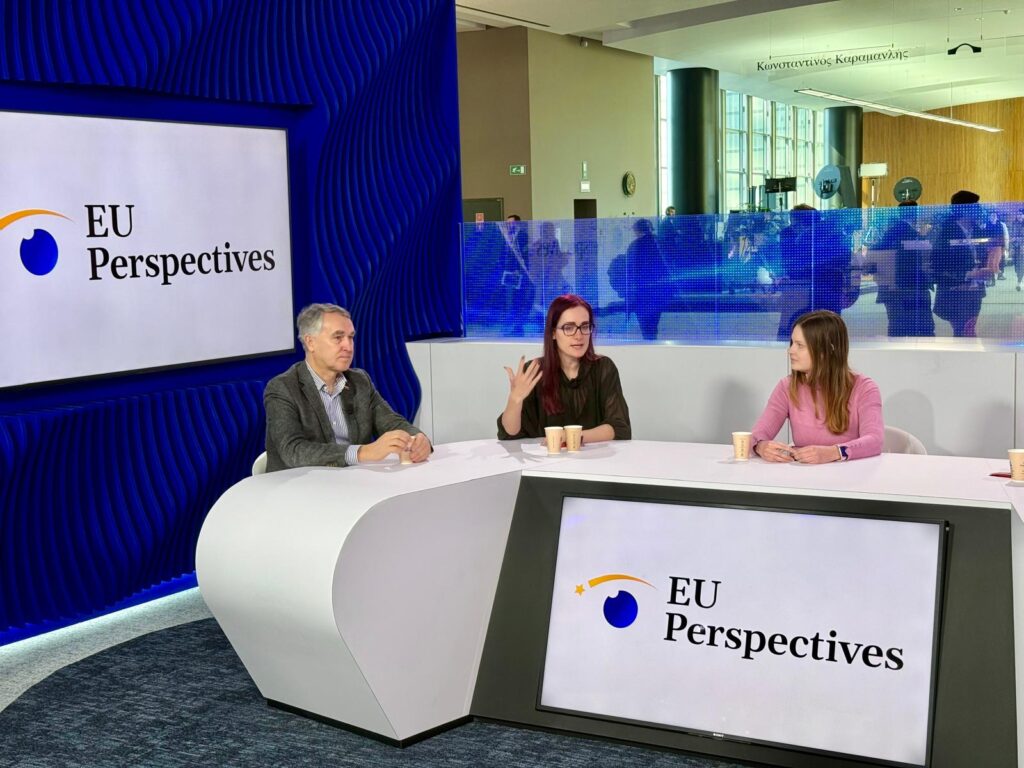
The Lithuanian economist and diplomat went on with his rather bleak assessment. “I don’t see, you know, across the board from member states a commitment to come up with the increase in defence spending. If I hear from the Prime Minister of Spain that even the climate change adjustment measures might be categorised as defence spending, then, you know…” his voice trailed off.
He did not appear terribly impressed by the amounts mentioned by the White Paper (and the pertaining ReArm Europe plan), either. The documents speak of €800bn for the EU member states to spend outside the usual budgetary constraints, as well as €150bn in loans. But there are are caveats.
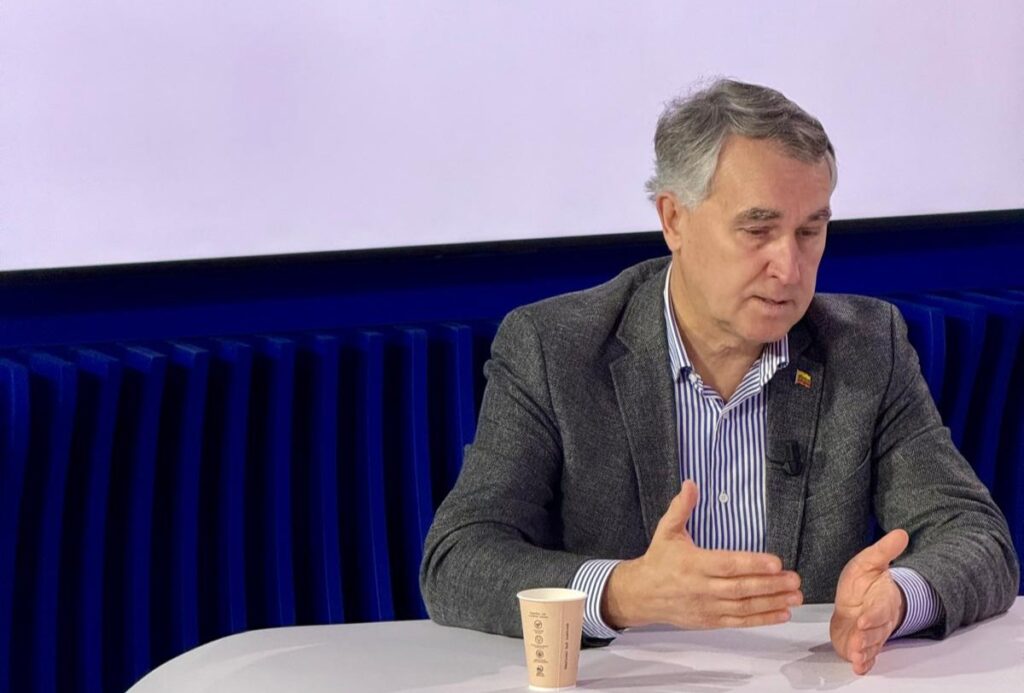
Mr Auštrevičius explained the sticky points. “When you put eight-hundred billion into one envelope, it looks rather thick. But when you try to look a bit deeper, what is behind the figures? Here, one-hundred and fifty billion is planned for community-based approach. OK – I think it could be even more. Also, the Commission didn’t to my understanding do enough to explain how, for example, regional and cohesion funds might be used. Because we have reached that point.”
Even the figures themselves are less impressive when you think of them in detail, Lithuania’s one-time youngest ambassador (at the age of 31, to Finland) explained. “One-hundred and fifty billion is not much. Well, it may be the budget of France and and Germany, combined. But spreading it over four years makes it forty billion a year. Not spectacular money,” he said.
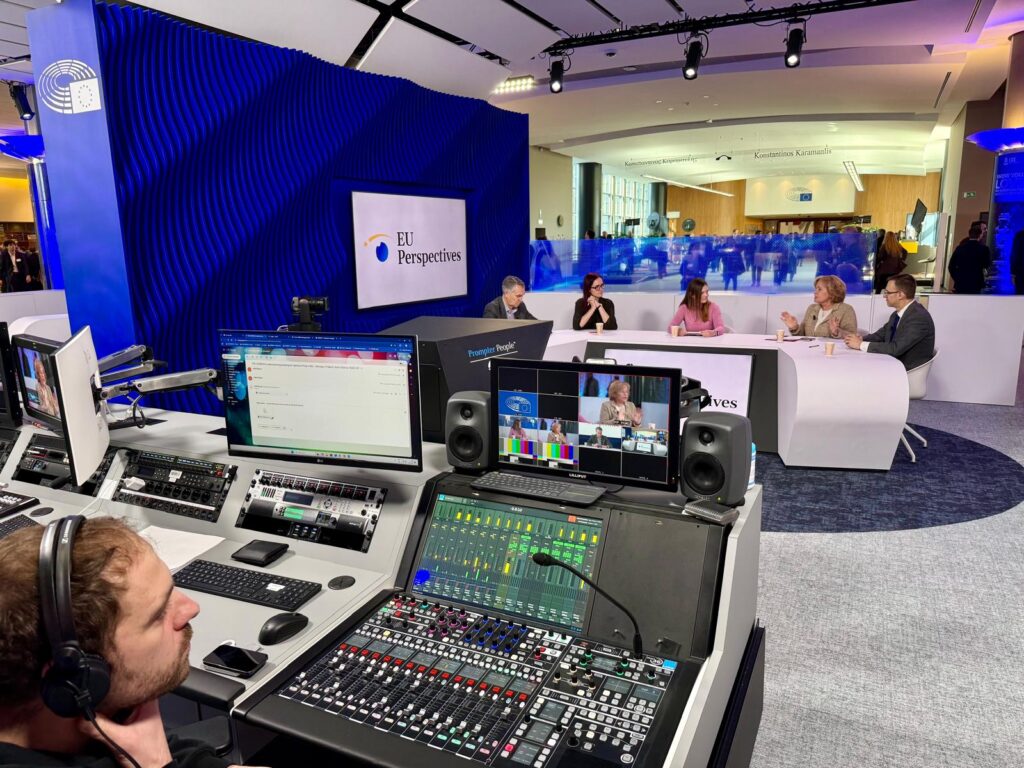
When asked about how realistic the idea was that the member states would actually use the money to beef up their defence, Mr Auštrevičius seemed lost for words. His fellow MEP, Ms Markéta Gregorová of Czechia captured the mood with a quip: “We are the cynical ones here.”
Time constraints represent another headwind. “Do we need one more year to ask the Commission to explain how those funds might be used by the member states? No, I don’t think we have such a privilege,” the Lithuanian MEP warned.
The he mentioned a crucial point. “I don’t like the kind of relaxed position of the European Commission concerning what role it might play in the planning of the member states’ defence spending. I know it (takes place under) NATO, and that NATO has its own methodology and procedures. But if we give this kind of money, we should not just finance running costs. We have to look what cost might arise in 3-4 years jointly. It’s not a simple business, like, you come with a check, you pay, and it’s ‘next!’”
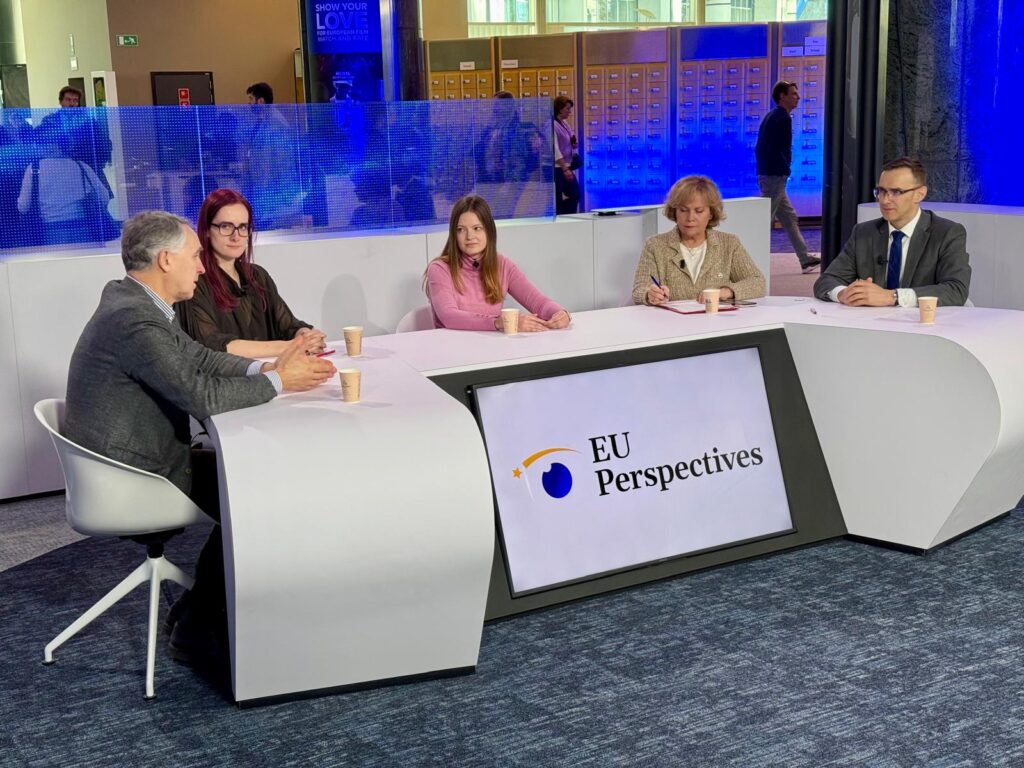
The most glaring mistake of this approach, in his view, is the fact that it will not fortify EU-wide cohesion, will not bring about the badly-needed standardisation, and it will not bring a common European action any closer.
Not everything was lost, though, Mr Fedor, Slovakia’s ex-top diplomat said. “Actually, there is a lot of cooperative production right now. U.S.-based industry sometimes uses European production as well. For example, those F-35s that the Czech Republic is now procuring, there is a lot of instruments inside them that is being produced in the European Union. It’s not, in its entirety, the production of the U.S.,” Mr Fedor saw a silver lining behind the dark cloud of Europe’ defence.
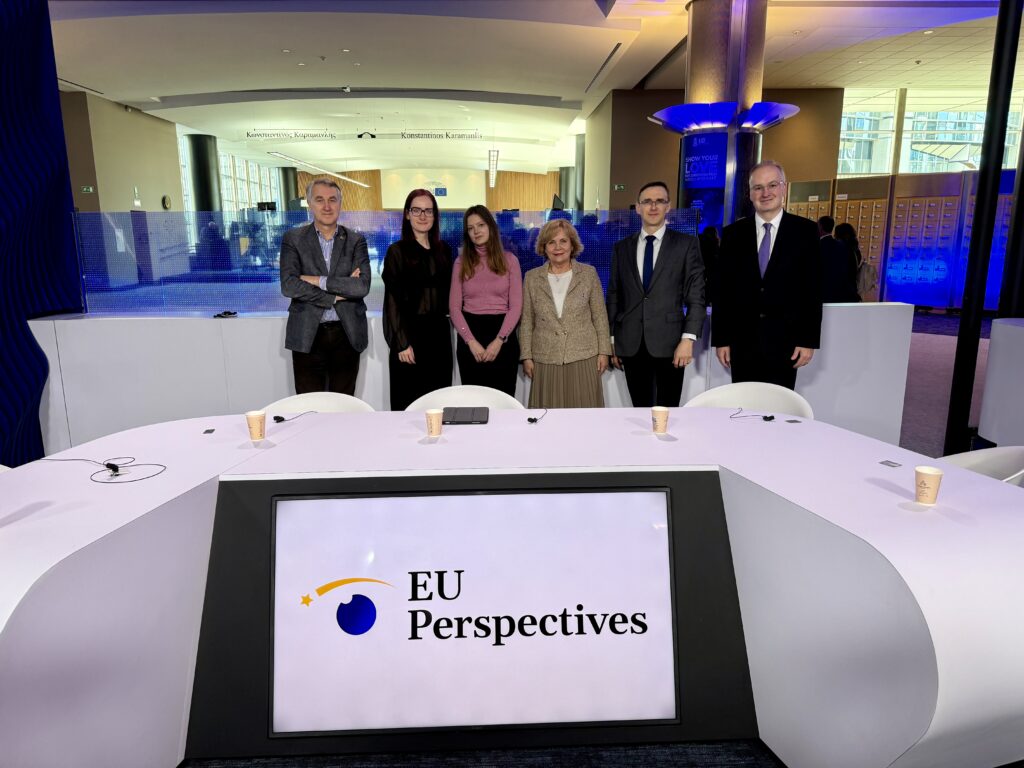
Paradoxically, Mr Auštrevičius stressed, the difficult period is presenting a unique opportunity for European defence strategists. “(We should), in fact, focus on the lessons and conclusions from Ukraine war, and I’m afraid that European countries are very, very slow to do so. Look at, for example, the military medical practice of the European Union. Ukraine offers so many lessons in this regard. Did we learn enough? Did we send our military doctors to Ukraine to be retrained, to receive this up-to-date experience from Ukraine? I don’t think so. So let’s be more creative in this regard, and let’s learn; I mean, we are still being given this golden chance to learn from Ukraine,” he said.
Still, Mr Auštrevičius tried to strike an optimistic note. “I am very, you know, cautiously optimistic. But at best, we can call it the first step. I see some awakening signs. I see some countries and, especially, some regions, moving where they have to move. Absolutely frank political language – even if still a far cry from a unified, timely, rational, and adequate response from the European Union,” he said.
Listen to the podcast on Spotify or on Apple Podcasts.
